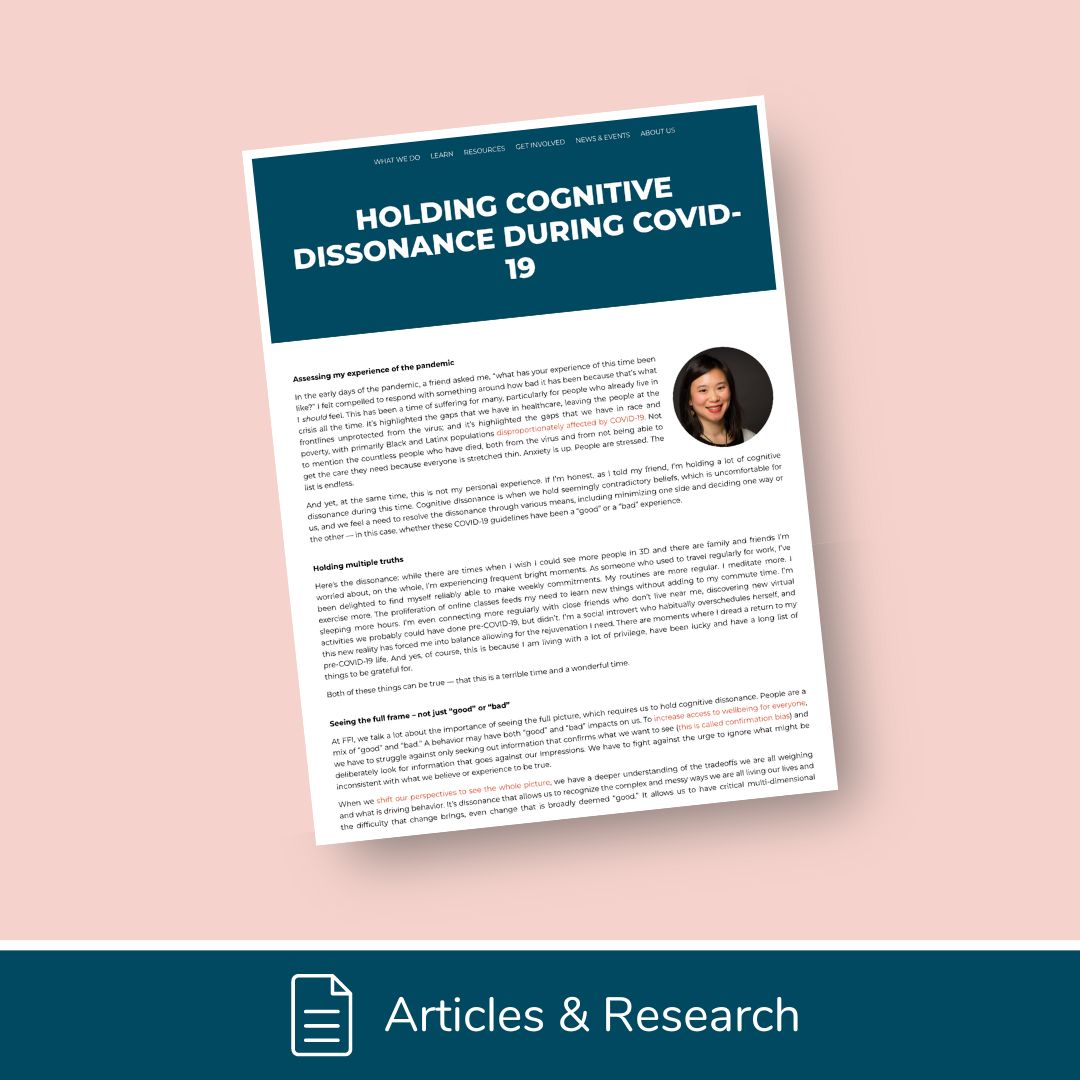
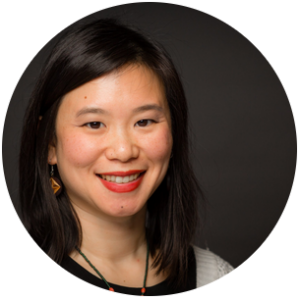 In the early days of the pandemic, a friend asked me, “what has your experience of this time been like?” I felt compelled to respond with something around how bad it has been because that’s what I should feel. This has been a time of suffering for many, particularly for people who already live in crisis all the time. It’s highlighted the gaps that we have in healthcare, leaving the people at the frontlines unprotected from the virus; and it’s highlighted the gaps that we have in race and poverty, with primarily Black and Latinx populations disproportionately affected by COVID-19. Not to mention the countless people who have died, both from the virus and from not being able to get the care they need because everyone is stretched thin. Anxiety is up. People are stressed. The list is endless.
In the early days of the pandemic, a friend asked me, “what has your experience of this time been like?” I felt compelled to respond with something around how bad it has been because that’s what I should feel. This has been a time of suffering for many, particularly for people who already live in crisis all the time. It’s highlighted the gaps that we have in healthcare, leaving the people at the frontlines unprotected from the virus; and it’s highlighted the gaps that we have in race and poverty, with primarily Black and Latinx populations disproportionately affected by COVID-19. Not to mention the countless people who have died, both from the virus and from not being able to get the care they need because everyone is stretched thin. Anxiety is up. People are stressed. The list is endless.
And yet, at the same time, this is not my personal experience. If I’m honest, as I told my friend, I’m holding a lot of cognitive dissonance during this time. Cognitive dissonance is when we hold seemingly contradictory beliefs, which is uncomfortable for us, and we feel a need to resolve the dissonance through various means, including minimizing one side and deciding one way or the other — in this case, whether these COVID-19 guidelines have been a “good” or a “bad” experience.
Here’s the dissonance: while there are times when I wish I could see more people in 3D and there are family and friends I’m worried about, on the whole, I’m experiencing frequent bright moments. As someone who used to travel regularly for work, I’ve been delighted to find myself reliably able to make weekly commitments. My routines are more regular. I meditate more. I exercise more. The proliferation of online classes feeds my need to learn new things without adding to my commute time. I’m sleeping more hours. I’m even connecting more regularly with close friends who don’t live near me, discovering new virtual activities we probably could have done pre-COVID-19, but didn’t. I’m a social introvert who habitually overschedules herself, and this new reality has forced me into balance allowing for the rejuvenation I need. There are moments where I dread a return to my pre-COVID-19 life. And yes, of course, this is because I am living with a lot of privilege, have been lucky and have a long list of things to be grateful for.
Both of these things can be true — that this is a terrible time and a wonderful time.
At FFI, we talk a lot about the importance of seeing the full picture, which requires us to hold cognitive dissonance. People are a mix of “good” and “bad.” A behavior may have both “good” and “bad” impacts on us. To increase access to wellbeing for everyone, we have to struggle against only seeking out information that confirms what we want to see (this is called confirmation bias) and deliberately look for information that goes against our impressions. We have to fight against the urge to ignore what might be inconsistent with what we believe or experience to be true.
When we shift our perspectives to see the whole picture, we have a deeper understanding of the tradeoffs we are all weighing and what is driving behavior. It’s dissonance that allows us to recognize the complex and messy ways we are all living our lives and the difficulty that change brings, even change that is broadly deemed “good.” It allows us to have critical multi-dimensional answers to questions like — Why doesn’t that person leave that relationship? Why do they do that, even if they know it hurts them? Why can’t I stop (fill in the blank) ? And, therefore, it allows us to have more effective multi-dimensional steps forward.
People’s access to wellbeing depends on our ability to hold multiple truths. It requires us to work against the way our brains are wired, to lean into the discomfort. It’s a difficult and important place to be. So, I’m practicing doing just that. I’m seeking information that doesn’t fit into my experience and I’m doing what I can to recognize, validate and respond to both realities of this time — and more as I discover them — while diminishing neither of them.
I invite you to practice with me.
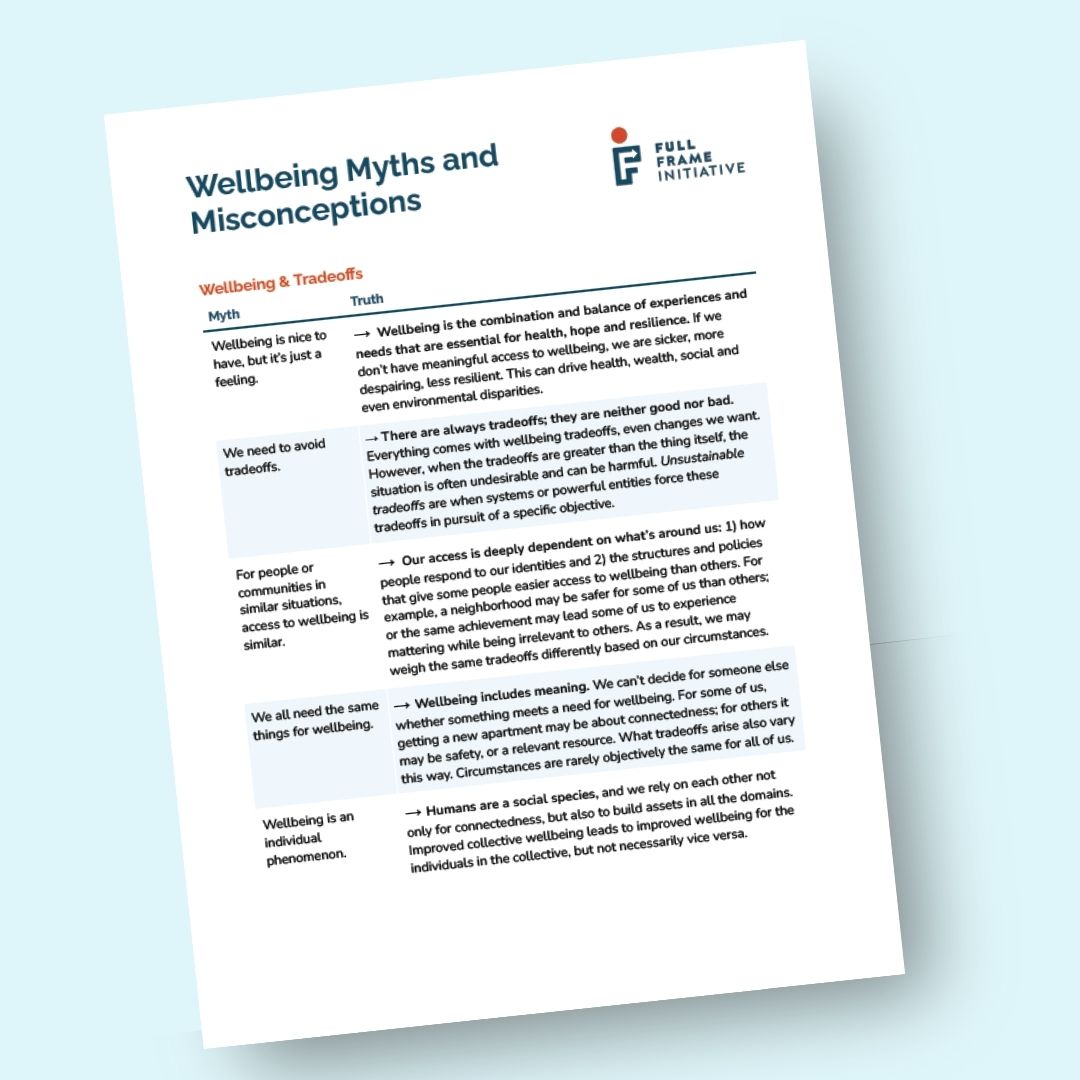
Wellbeing isn't just a nice to have and we break down the myths and misconceptions about wellbeing and tradeoffs.
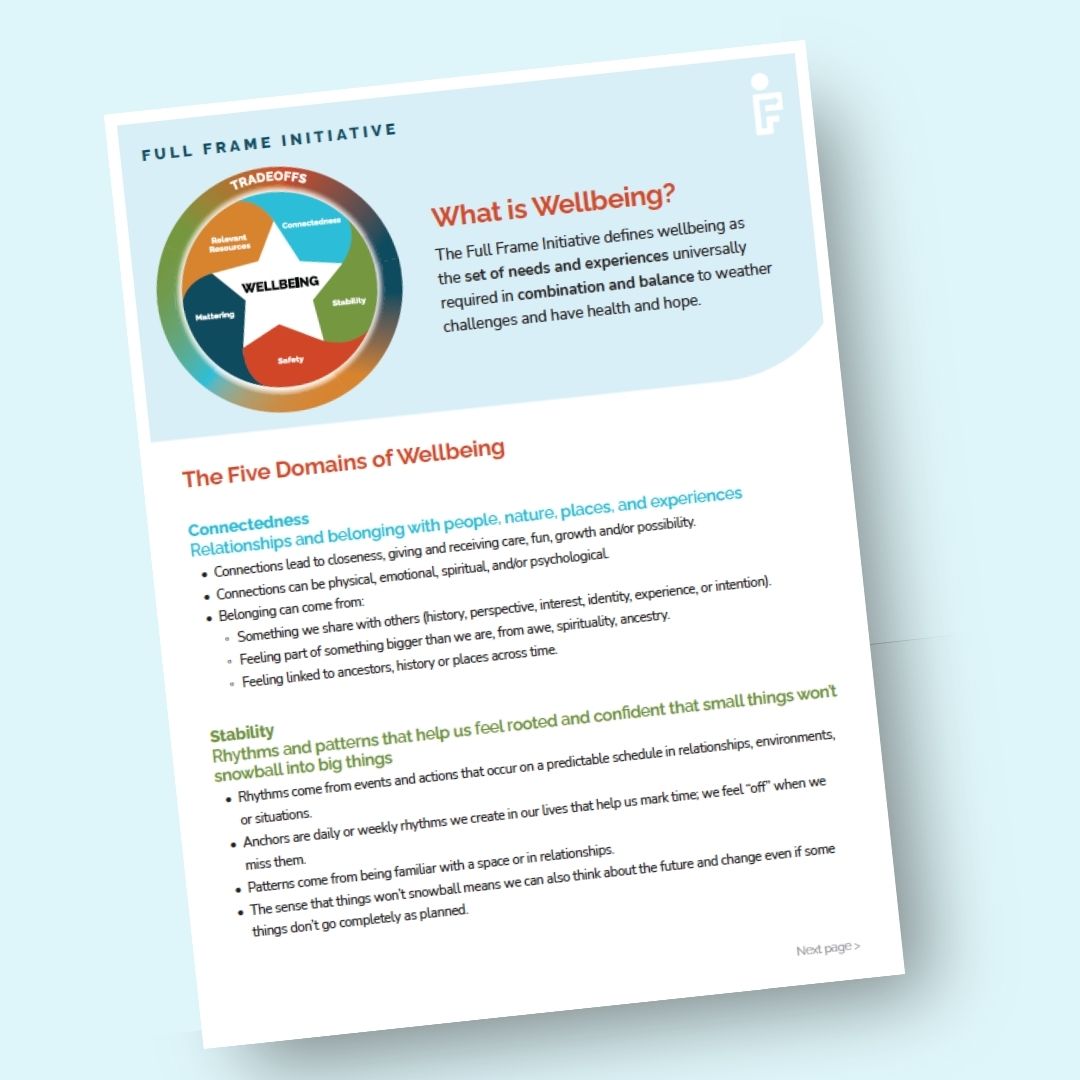
The Full Frame Initiative defines wellbeing as the set of needs and experiences universally required in combination and balance to weather challenges and have health and hope.
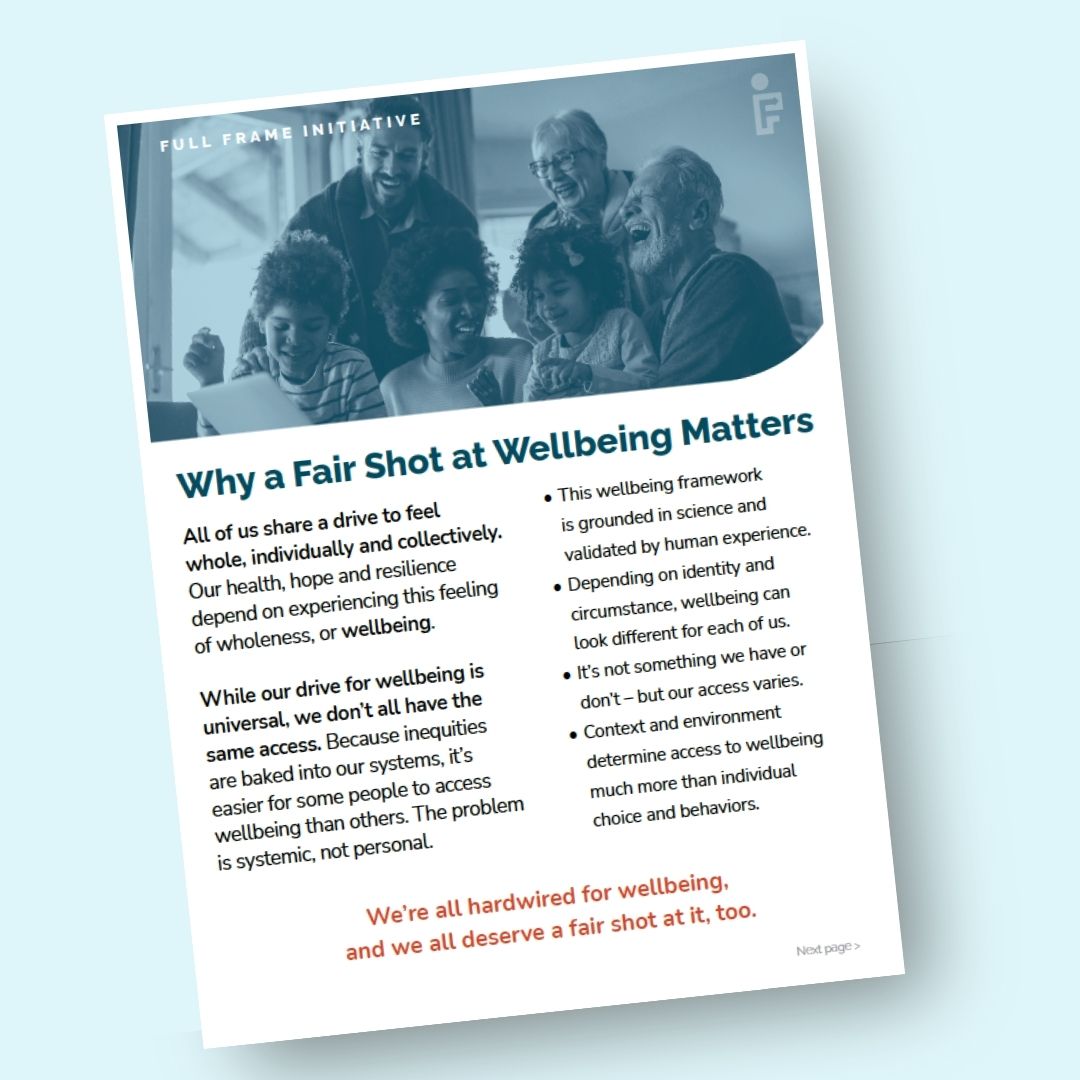
All of us share a drive to feel whole, individually and collectively. We're all hardwired for wellbeing, and we all deserve a fair shot at it, too. But we don't all have the same access.